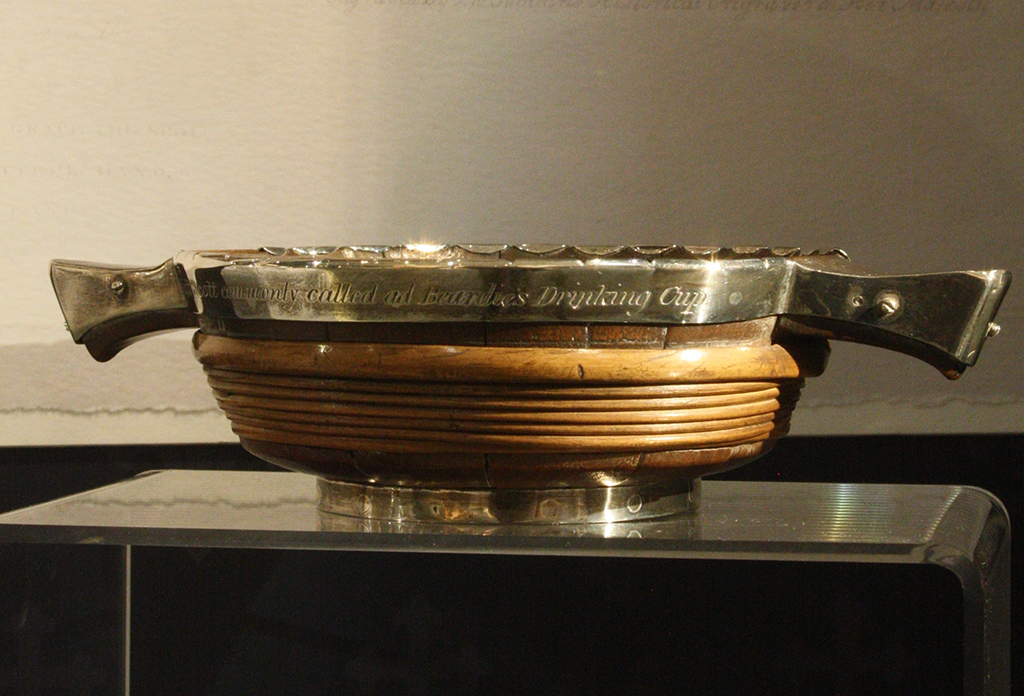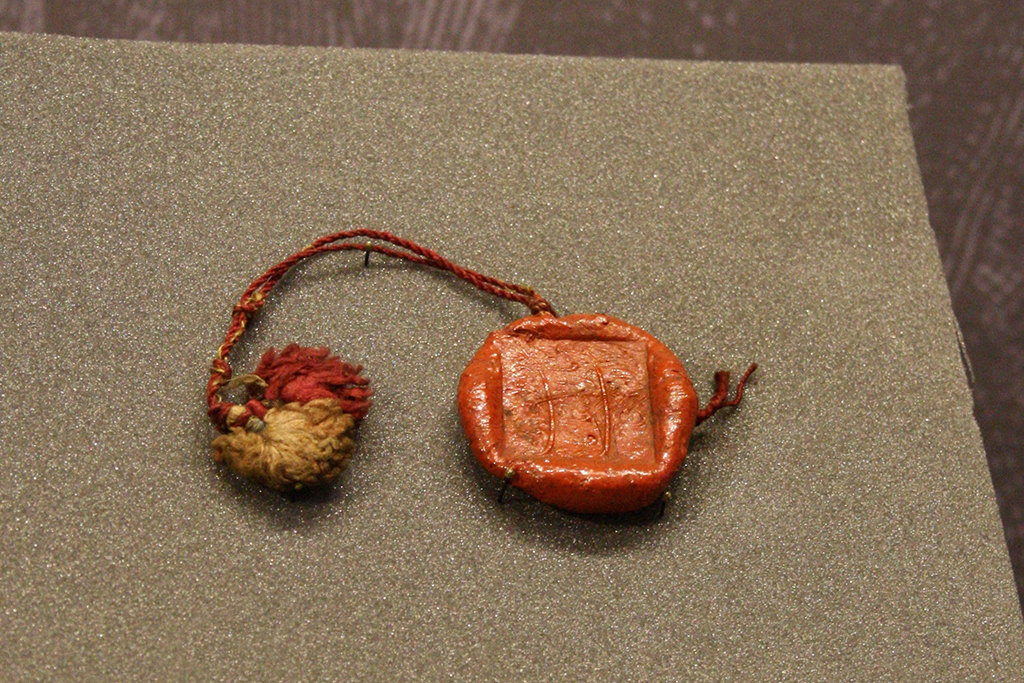A wooden Jacobite quaich, a rare pack of 17th century playing cards, a slop bowl and a Persian charm are among a range of items added to the Sir Walter Scott exhibition.
Being held at his famous home Abbotsford, in the Scottish Borders, the new attractions are all ready for the opening of the new season on Friday March 1.
Also new to the exhibition is a copy of Adam Smith’s Wealth of Nations, which Scott used as a student at Edinburgh University, and a childhood favourite, Robert Lindsay’s The History of Scotland, considered by Scott to be a valuable source on the battle of Flodden in 1513.
Visitors to the free exhibition, in Abbotsford’s visitor centre, will also have limited time to see an exquisite gold memorial locket, set with semi-precious stones spelling out the author’s name as an acrostic, which will be returning to the private lender in May, alongside a silver centrepiece commemorating the 70th anniversary of Scott’s poem The Lady of the Lake.
Kirsty Archer-Thompson, Abbotsford’s collections and interpretation manager, said: ‘Our introductory exhibition to the life and legacy of Sir Walter Scott is refreshed every year, so there is always something new for visitors to see. This year we have added an eclectic mix of items ranging from family heirlooms and some of Scott’s favourite books, to more exotic items like the Persian amulet.

A Jacobite quaich belonged to Walter ‘Beardie’ Scott
‘We are also looking forward to making further changes this year, when we will be loaned an exciting range of items from the National Museum of Scotland later in the spring, so it’s worth people coming back for another look in a few months.’
The Jacobite quaich belonged to Walter ‘Beardie’ Scott, Scott’s great grandfather, who fought tirelessly for the Jacobite cause and famously vowed not to trim his beard until a Stuart monarch regained the throne. The playing cards, from 1691, engraved with the arms of the Scottish royal family and her nobles with a seat in Parliament, were a gift from Scott’s publisher who described them as a ‘real rarity’.
The curious slop bowl, on loan from ANGUSalive Museums, is said to have been used by the novelist during his stay with a Mrs Walker, in the small fishing village of Auchmithie near Arbroath, while gathering material for his novel The Antiquary (1814). Slop basins form part of a traditional tea set and are used as receptacles for the dregs from tea and coffee cups.
Treasured for its association with the celebrity author, the bowl was passed down through Mrs Walker’s family, and over the last two centuries has travelled as far as South Africa, and even been used as a christening bowl.

A Persian charm
The Persian amulet, which highlights Scott’s interest in the historical and cultural beliefs of other people, was probably gifted to him by his poet friend, John Leyden of Denholm, who was proficient in Arabic and passionate about Middle Eastern cultures. Work is currently underway by the Abbotsford heritage team to translate the Arabic letter, which accompanied the charm, to understand its symbology, ritual and meaning.
Abbotsford’s house, chapel and gardens open for the new season on Friday March 1.
They are open from 10am – 4pm daily, with last entry at 3pm, during March, and then 10am – 5pm from April, last entry at 4pm. The visitor centre, which houses the Sir Walter Scott exhibition, and Ochiltree’s café are also open daily in March from 10am to 4pm, then 10am – 5pm from April 1.
Further information about admission prices and events are available on the website www.scottsabbotsford.com.
TAGS

